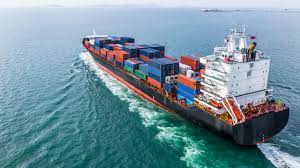Our economy depends on it but, as rising ocean levels threaten our home, tightening regulation is key
By David Kabua, Marshall Islands President
For my country and people, climate change is not a theoretical issue — it is a real and present danger. About 98 percent of the Marshall Islands’ territory is composed of water — one of the largest of any sovereign state globally — and rising ocean levels threaten our home. Yet, in a twist of fate, the actions that will have the greatest beneficial impact on our long-term future pose a significant challenge to one of our most important industries: shipping.
Despite our small land mass and population, the Republic of the Marshall Islands is one of the key players in global seaborne trade. We may not be part of the G20, but as the world’s third-largest flag state, we are leaders in global shipping. We are determined to use this position to accelerate an equitable shift to green shipping practices and technologies.
There is an urgent need to stem greenhouse gas emissions, but key international bodies are moving too slowly, including on the often overlooked issue of global shipping. Many of the solutions that will have the greatest impact may deliver a burden that disproportionately affects countries already bearing the brunt of climate change. But we can develop solutions that will make this transition equitable.
Ocean-going ships account for some three percent of emissions, but that’s expected to spike significantly by 2050, as identified in an International Maritime Organisation study. As the specialised UN body charged with regulating shipping, the IMO is in the process of tightening emissions standards. Their decisions will lock in what happens for decades, so now is the time to act.
Given that the people of the Marshall Islands feel this existential threat acutely, we are championing a consequential action to reduce carbon emissions: embracing a price on all those activities connected to international shipping. This will not only drive down the industry’s emissions, but also provide the means for investing in the technologies needed to ensure that no country is left behind.
In the aftermath of COP27, it is clear that we cannot rely on the United Nations Framework Convention on Climate Change process alone. The good news is that commitment to action in the maritime sector already exists. The IMO has agreed to make its greenhouse gas strategy more ambitious, and at the close of its meeting this month, the body’s secretary-general Kitack Lim noted how “crucial it is for members to keep the momentum and deliver an ambitious and fair revised IMO greenhouse gas strategy next year”. This new course must cut emissions steeply, with an 80 per cent reduction by 2040 to reach zero by 2050 at the latest, in order to ensure the Paris limit of 1.5 degrees remains within reach.
Many countries are aligning on this goal. And some of the largest shipping companies, such as Maersk, support the necessary steps, driven by the demands of their major customers, to achieve zero-emission shipping. But others are hesitating, focusing on the cost of action rather than the enormous cost of inaction.
This needs to change. There are no easy answers, but there are ways to ensure the shift to green shipping will deliver a safer planet and more efficient, equitable trade. A price on shipping emissions would drive decarbonisation of the sector while creating new funding to ensure all nations can transition together, especially the most vulnerable. IMO members must act now.
If countries and cultures disappear because of elevated sea levels, will we ask if the price was worth it to delay inevitable changes that we were too timid to confront? If the Marshall Islands and our allies in the Pacific can endorse such measures, given the overwhelming dependence of our own economies on international shipping, then surely others can join us in supporting the common sense regulatory actions needed for green shipping.
SOURCE:FINACIAL TIMES/PACNEWS


















